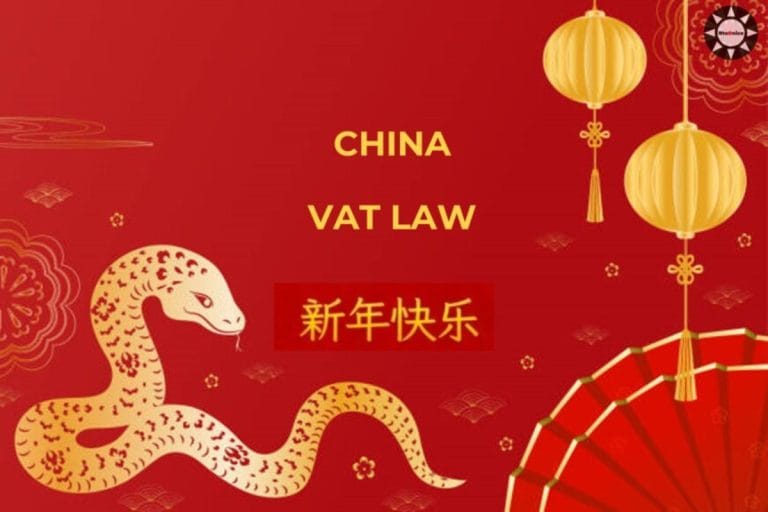🎧 Listen to This Article
China is ushering in a new era for its Value Added Tax (VAT) regime. On December 25, 2024, the Standing Committee of the National People’s Congress officially enacted the long-awaited VAT Law, which will take effect on January 1, 2026. This move marks a crucial step towards streamlining the tax system in one of the world’s largest economies but also raises questions for businesses, particularly those engaged in cross-border transactions.
Read More: China’s New Tax Guidelines for Platform Businesses
Historically, China’s VAT system operated under a fragmented framework, with various regulations and rules issued by the Ministry of Finance (MOF) and State Taxation Administration (STA). This fragmentation led to inconsistent application across sectors and complexities in business tax compliance. The VAT Law seeks to bring cohesion to the system by establishing a more transparent, unified legal framework for VAT across the country.
For the first time, the VAT system in China will be governed by a single, comprehensive legal structure, reinforcing the principle of “taxation according to the law.” While the law’s enactment is a significant milestone, the real challenge will be integrating the previously fragmented rules with the new law and its forthcoming regulations.
One of the most significant changes in the VAT Law is a shift in how the place of sale for services and intangible properties is determined. Under the previous system, the location of the seller or buyer was the primary criterion for VAT jurisdiction. However, under the new law, the “place of consumption” will decide whether a sale of services or intangible properties falls within China’s VAT system. This adjustment aligns China’s VAT regime more closely with international tax norms, particularly those used by the European Union and other major economies.
In addition, the VAT Law addresses the sale of financial products, providing much-needed clarity. The new law specifies that financial products will be subject to VAT within China if they are issued domestically or if the seller is a domestic entity or individual. This clarification should help reduce confusion in the financial industry, particularly for businesses dealing with cross-border financial transactions.
The VAT Law also introduces a narrowing scope for “deemed sales” transactions previously subject to VAT, even if no physical sale had occurred. Under the new law, only a few specified scenarios will be considered sales. The previous catch-all provision has been removed, making it easier for businesses to identify which transactions fall under the VAT system. This change is expected to reduce business compliance burdens and increase certainty around tax obligations.
Although the VAT Law represents a significant overhaul, it does not automatically repeal the existing VAT rules. As such, businesses will still need to navigate the complexities of the old system, at least until the new regulations are fully integrated into the tax landscape. The MOF and STA will likely issue additional regulations to address gaps and clarify how the new law will apply.
In particular, multinational companies and foreign entities in China must carefully monitor upcoming regulations. One key area of focus is the status of foreign e-commerce businesses under the new VAT regime.
Article 15 of the VAT Law offers a glimpse into how China might handle cross-border VAT compliance, especially for foreign e-commerce businesses. The law now bypasses whether a foreign company has a physical establishment or a domestic agent in China. Instead, it designates the purchaser as the withholding agent for VAT unless the foreign entity or individual appoints a domestic agent by regulations from the State Council.
This approach mirrors similar moves in other jurisdictions, where non-resident e-commerce companies must register and pay VAT on sales made to domestic consumers. If China moves forward with regulations that implement this provision, it could significantly impact cross-border transactions, particularly for e-commerce platforms and digital service providers selling directly to Chinese consumers.
The enactment of the VAT Law represents a significant shift in how VAT will be applied in China, especially for cross-border business operations. Multinational companies operating in China and foreign businesses engaged in e-commerce will need to adjust their VAT compliance strategies in response to these changes.
Businesses must stay informed about the upcoming regulations that will define how the VAT Law will be applied. Key areas for focus include the scope of VAT on cross-border sales, the new rules on financial products, and how China’s approach to “place of consumption” will affect service providers operating in multiple jurisdictions.
As the law is implemented in 2026, businesses must adapt to a new regulatory environment that is more aligned with global tax norms and carries new compliance obligations. For now, companies must closely monitor the regulatory developments and ensure that their operations comply with China’s evolving VAT framework.
For further details, clarification, contributions, or any concerns regarding this article, please get in touch with us at editorial@tax.news. We value your feedback and are committed to providing accurate and timely information. Please note that our privacy policy will handle all inquiries.



